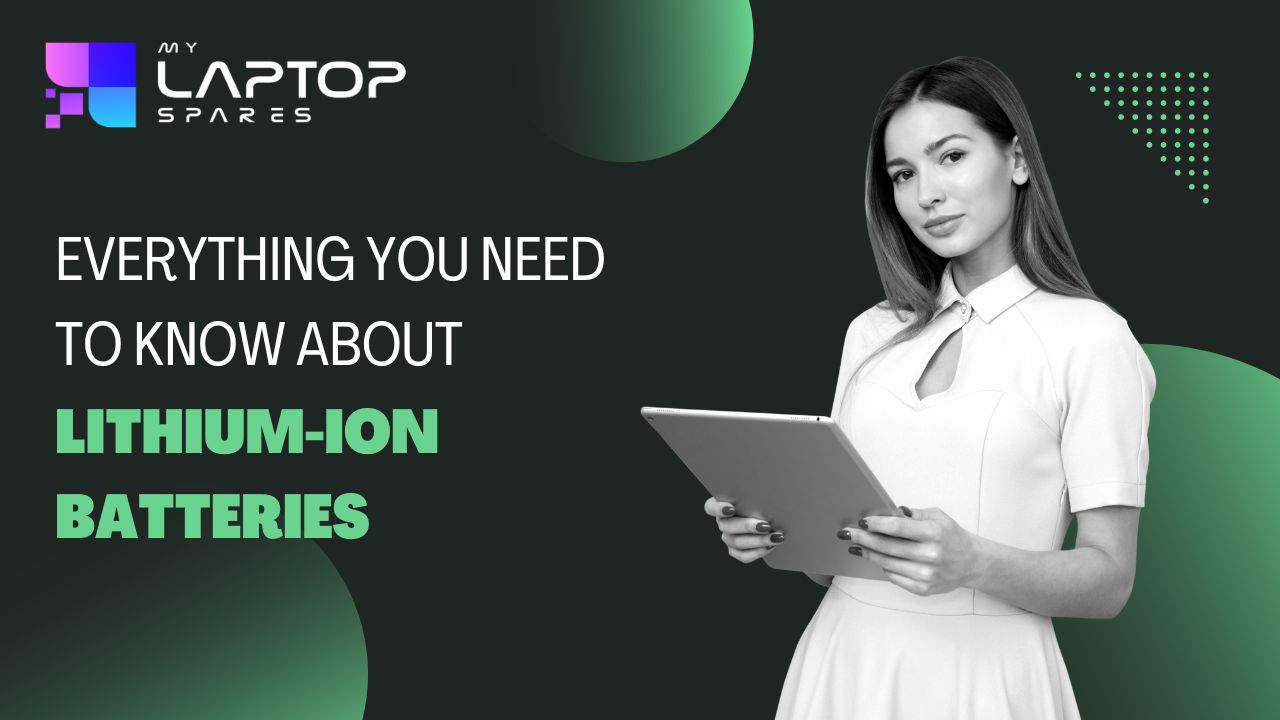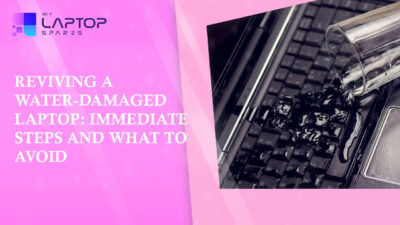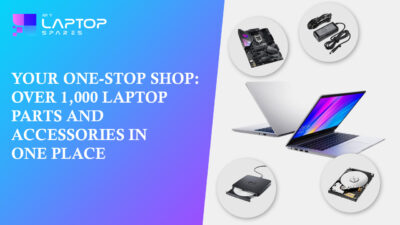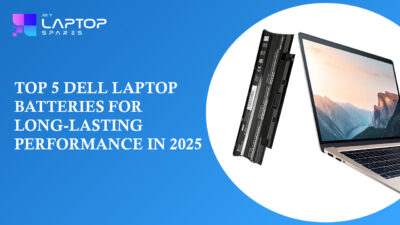Everything You Need to Know About Lithium-ion Batteries

Regardless of technological advances, we humans continue to rely on batteries to power portable electronic gadgets such as laptop computers. The most popular rechargeable batteries found in consumer devices are either lithium ion or lithium polymer. While the types of Lapgrade Laptop Batteries we use have evolved, Li-ion Batteries continue to dominate the market as they are more valuable and efficient. A Lithium-ion battery powers everything, from a modest power bank to a laptop to something as massive as Tesla’s new Model 3.
In this article, we will go over everything you need to know about lithium-ion batteries for laptops, including their benefits, drawbacks, and recommendations for extending their duration.
What are Lithium-ion Batteries?
Lithium-ion batteries are the most widespread type of battery found in laptops, cellphones, and other portable electronic devices. They are well-known for their high energy density, extended life, and low self-discharge rate. A lithium-ion (Li-ion) battery is a high-tech battery that employs lithium ions as a vital part of its electrochemistry. Lithium atoms in the anode of a battery are ionized and detached from their electrons during a discharge cycle.
What essentially happens is that the lithium ions travel from the anode through the electrolyte until they reach the cathode, where they recombine with their electrons and electrically neutralize. These lithium ions are tiny enough to pass through a micro-permeable separator that separates the anode and cathode. This enables them to have very high voltage and charge storage per unit mass and volume.
Advantages of Lithium-Ion Batteries for Laptops:
High Energy Density:
Because lithium-ion batteries have a high energy density, they can store a large quantity of energy in a relatively small amount of space. This is especially important for laptops, which have to be portable and lightweight.
Long Life:
Lithium-ion batteries are more durable than other types of batteries. They can be recharged multiple times before they start deteriorating, making them a more cost-effective solution in the long term.
Low Self-Discharge Rate:
Since lithium-ion batteries have a low self-discharge rate, they are capable of maintaining a charge for longer periods of time. This is particularly important for laptops, which may not be used for a prolonged amount of time.
Disadvantages of Lithium-Ion Batteries for Laptops:
High Cost:
Lithium-ion batteries tend to cost more than other types of batteries. This is due to the fact that they are made of more expensive materials and require more modern methods of production.
Risk of Overheating:
If lithium-ion batteries are not utilized properly or are damaged, they can overheat and catch fire. Although this is a rare occurrence, it is important to exercise caution when utilizing lithium-ion batteries.
Limited Lifespan:
Lithium-ion batteries have a fixed lifespan and will eventually degrade. This implies they will need to be changed at some point, which can be costly.
Read More Blog: How Much Does It Cost To Replace A Laptop Battery?
Tips for Extending the Lifespan of Lithium-Ion Batteries for Laptops:
Avoid Overcharging:
Lithium-ion batteries should not be overcharged. This can lead to overheating and degrade faster.
Use the Right Charger:
Only use the charger that comes with your laptop or a charger intended specifically for your laptop model. Using the incorrect charger can cause battery damage and even damage your device.
Store at Room Temperature:
Lithium-ion batteries should be kept at room temperature. Extreme temperatures can cause the battery damage and limit its lifespan.
Avoid Deep Discharges:
Lithium-ion batteries should not be entirely discharged. This could lead the battery to degrade more quickly.
As a result, Li-ion batteries have eventually surpassed Ni-Cd batteries as the market leader in portable electronic devices (such as smartphones and laptop computers). Lithium-ion batteries are the most common type of laptop battery, and they have several benefits over other types of batteries. You can help to extend the life of your lithium-ion battery and get the most out of your laptop by following the suggestions provided in this article.
Categories
- Accessories (84)
- Gaming Laptop (6)
- Keyboard (15)
- laptop (18)
- Laptop Adapters (15)
- Laptop Batteries (30)
- Laptop Screen (14)
- Laptop Spares (15)
- Uncategorized (1)
- video conferencing (6)
Recent Posts

Reviving a Water-Damaged Laptop: Immediate Steps and What to Avoid
You're working diligently on your laptop, sipping a cup of coffee, and suddenly, disaster strikes: the coffee spills all over... read more

Your One-Stop Shop: Over 1,000 Laptop Parts and Accessories in One Place
Your laptop isn’t just a gadget, it’s your portable office, your creative studio, your entertainment hub, and in many cases,... read more

Top 5 Dell Laptop Batteries for Long-Lasting Performance in 2025
In an era where digital workplaces rule and remote collaboration is the new standard, having a long-lasting and dependable read more

Keyboard Not Working on Dell Laptop? Troubleshooting + Replacement Tips
A broken keyboard on your Dell laptop can be more than just a nuisance; it can halt your entire productivity. Fortunately,... read more

How to Identify Fake Dell Laptop Batteries
In today’s technology-oriented world, our laptops are essential tools for professional tasks, learning, and leisure activities. Among the reputable laptop brands,... read more

Dell Charger Buying Guide: Wattage, Voltage & Tips
Your Dell laptop’s dependability relies heavily on the charger that powers it. Whether you’re a night owl student, a busy... read more
